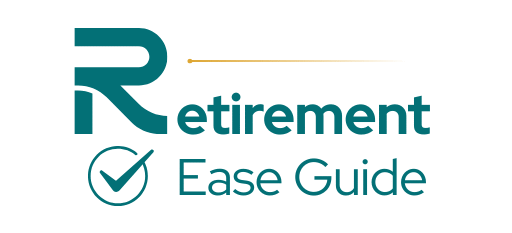Healthcare Planning
“Protect Your Health, Preserve Your Wealth — Plan Ahead with Confidence.”
Healthcare Planning for Retirement: Safeguard Your Savings with Confidence
Prepare for a secure retirement with a robust healthcare plan. Discover how to estimate costs, navigate Medicare, bridge pre-65 coverage gaps, and develop a sustainable healthcare budget to protect your savings.
The Importance of Healthcare Planning
Healthcare stands as one of the most significant and unpredictable expenses during retirement. Proactive planning empowers you to:
- Minimize unexpected financial burdens
- Eliminate coverage gaps
- Preserve your savings, ensuring a retirement free from financial worry
Insight: According to Fidelity Investments, a typical couple retiring at age 65 may require between $120,000 and $200,000 to cover healthcare costs throughout their retirement.


Need Medicare or Health Insurance Support?
Compare Medicare options, supplemental coverage, and long-term care insurance with trusted specialists. Get clear answers based on your health needs. Secure and confidential. ✓ Compare plans • ✓ Check benefits • ✓ Lower your premiums
Understanding Rising Healthcare Costs
| Factor | Impact |
|---|---|
| Inflation | Medical costs often outpace general inflation rates. |
| Longevity | Extended lifespans increase the duration of care needed. |
| Prescription Prices | Drug expenses consistently exceed average inflation. |
| Coverage Gaps | Medicare does not cover all services, leaving out-of-pocket costs. |
Effective healthcare planning enhances your financial stability while maintaining your quality of life as you age.
Step 1: Mastering Medicare Fundamentals and Coverage Gaps
| Medicare Type | Covers | Gaps to Consider |
|---|---|---|
| Part A | Hospital care | Deductibles and co-insurance may apply. |
| Part B | Outpatient care, doctor visits | Includes premiums, copays, and uncovered services. |
| Part D | Prescription drugs | Plan-specific costs and exclusions. |
| Medigap (Supplemental) | Covers copays and deductibles | Excludes vision and dental care. |
| Medicare Advantage (Part C) | Bundled plans | May limit provider networks. |
| Long-Term Care | Not covered | Requires separate insurance or savings plan. |
Action Steps:
- Enroll Promptly: Register for Medicare on time to avoid penalties.
- Evaluate Options: Compare plans and provider networks by ZIP code.
- Budget Accurately: Factor in premiums, copays, and drug costs.
- Annual Review: Adjust coverage and needs yearly as circumstances evolve.
Connect — Quick Request
Choose a request type and submit a short form. We’ll match you with a trusted partner within 48 hours.

Step 2: Bridging the Pre-65 Coverage Gap
Retiring before age 65 requires interim health coverage until Medicare eligibility. Consider these options:
Option | Description | Considerations |
Employer Continuation (COBRA) | Extends your current plan temporarily | High premiums despite robust coverage. |
Marketplace (ACA) Plans | Affordable Care Act coverage | Subsidies available based on income. |
Spouse’s Employer Plan | Utilize your partner’s benefits | Verify dependent eligibility. |
Private/Short-Term Plans | Temporary stop-gap coverage | Limited benefits; use with caution. |
Tip: Incorporate these interim costs into your retirement calculator, as early retirement healthcare can significantly impact your savings goals.
Step 3: Preparing for Long-Term Care
A common misconception is that Medicare covers long-term care—it does not. Custodial care, assisted living, and in-home services typically fall outside its scope.
Why It Matters?
- Average Assisted Living Cost: $60,000+ per year.
- Private Nursing Home Care: $110,000+ per year.
Coverage Options
- Long-Term Care Insurance: Funds extended care needs; best rates in your 50s.
- Hybrid Policies: Combines life insurance with long-term care benefits.
- Annuities with LTC Riders: Provides income plus care cost protection.
- Alternatives: Leverage home equity, family support, or local aging programs.

Plan Smarter — Connect with a Financial Advisor
Get personalized guidance from a Trusted financial advisor who understands retirement tax rules, withdrawal sequencing, and Social Security strategy.
Step 4: Leveraging HSAs and Tax-Smart Strategies
A Health Savings Account (HSA) is a highly effective, tax-advantaged tool for retirement healthcare, offering:
- Tax-deductible contributions,
- Tax-free growth,
- Tax-free withdrawals for qualified medical expenses.
Smart Moves
- Maximize annual HSA contributions pre-retirement.
- Allow your HSA to accumulate as a dedicated medical fund.
- Use it for premiums, prescriptions, and deductibles tax-free post-retirement.
Additional Strategies
- Strategically withdraw from pre-tax accounts (e.g., IRAs).
- Consider a small annuity to cover fixed medical expenses like premiums.

Looking for Perfect Community According to Your Needs?
Find the right community for your lifestyle—nationwide. Compare amenities, pricing, and neighborhood features across top-rated communities.
Step 5: Estimating Your Healthcare Needs
Follow this practical framework to build your healthcare budget:
- List Current Costs: Include annual premiums, prescriptions, and doctor visits.
- Adjust for Inflation: Assume a 3–4% annual healthcare inflation rate.
- Add a Buffer: Account for long-term care or chronic conditions.
- Include Electives: Factor in dental, vision, and wellness treatments.
- Integrate with Income: Use our tools to align spending with retirement income.

Quick Action:
Utilize our Withdrawal Planner or Retirement Income Estimator to assess how healthcare costs fit into your financial plan.
Step 6: Selecting Cost-Effective Retirement Locations
Your retirement location significantly influences healthcare expenses. States like Florida, Arizona, and Texas offer lower costs and no state income tax, while locations like California or New York may increase out-of-pocket spending.
Insight: Explore our Best States to Retire in 2025 guide for comparisons of healthcare access, tax rates, and cost of living.
Need a detailed healthcare cost review?
We offer a complimentary, no-obligation healthcare cost review that estimates your expected out-of-pocket spending by year and shows options to reduce risk.
Frequently Asked Question
How much should I budget for healthcare in retirement?
A conservative estimate is $120,000–$200,000 per person for lifetime out-of-pocket costs, varying by location and health.
Does Medicare cover long-term care?
No. Traditional Medicare excludes custodial long-term care; plan with insurance or savings.
Are HSAs beneficial near retirement?
Yes. Maximizing HSA contributions in your 50s or early 60s remains a tax-smart strategy.
What if I retire before 65?
Secure interim coverage via COBRA, ACA plans, or a spouse’s plan until Medicare begins.
Can I use my HSA after retirement?
Yes, for tax-free qualified medical expenses at any age.
How does location affect costs?
Healthcare costs, taxes, and provider availability vary by state—compare before relocating.
Get a Quick Estimate
Leverage our tools to evaluate healthcare’s impact on your retirement:
- Healthcare Expense Estimator
- Withdrawal Planner
- Income Estimator
How We Support You?
At RetirementEaseGuide, we streamline retirement healthcare with:
Trusted Educational Guides,
Free Calculators and Tools,
Personalized Reports,
Adviser Connections for informed decisions.
Disclaimer: © RetirementEaseGuide – This content is for informational purposes only and not intended as medical or financial advice.




